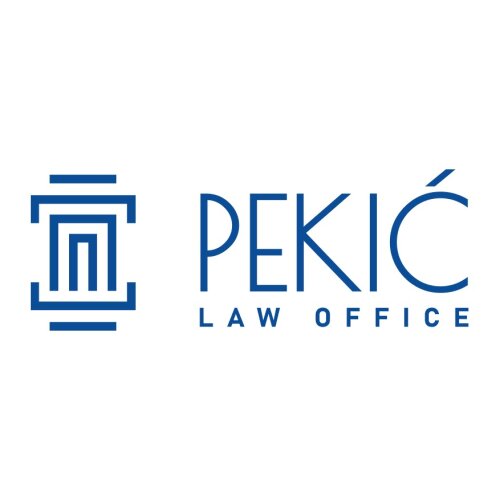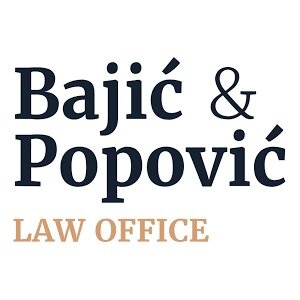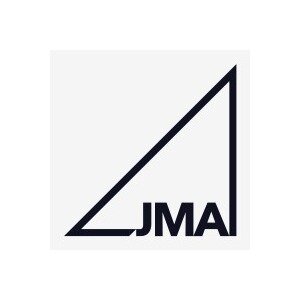Best Structured Finance Lawyers in Serbia
Share your needs with us, get contacted by law firms.
Free. Takes 2 min.
Or refine your search by selecting a city:
List of the best lawyers in Serbia
Legal guides written by Business Law office - Advokatska Kancelarija:
- Why Invest In Serbia
About Structured Finance Law in Serbia
Structured finance is a specialized area of financial law that deals with complex financial instruments designed to manage risk and optimize funding. In Serbia, structured finance is relevant to both corporate entities and financial institutions, particularly those involved in large-scale projects, securitization, and syndicated lending. The legal framework surrounding structured finance in Serbia intersects with banking law, securities regulation, insolvency law, and contract law, making it crucial for participants to understand the multifaceted compliance requirements. Participants often utilize various financial products such as asset-backed securities, collateralized debt obligations, and other structured credit products to achieve specific objectives.
Why You May Need a Lawyer
Structured finance transactions are intricate, involving multiple stakeholders, financial instruments, and legal frameworks. You may need a lawyer in the following situations:
- Structuring or participating in complex lending arrangements or securitizations
- Reviewing or negotiating loan agreements, including syndication terms
- Navigating regulatory compliance related to securities, banking, or tax matters
- Repackaging risky assets into tradable securities
- Risk assessment and due diligence in cross-border transactions
- Managing bankruptcy or insolvency issues linked to structured finance deals
- Enforcing or defending against claims in structured finance disputes
- Interpreting capital markets and banking requirements
Given the complexity and potential liability, having legal counsel ensures compliance with Serbian laws and the efficient management of financial risk.
Local Laws Overview
Structured finance in Serbia is predominantly governed by a combination of the following legislative acts:
- Law on Banks - Outlines the roles, obligations, and restrictions for banking institutions, including provisions for lending and securitization.
- Law on Capital Markets - Regulates the issuance and trading of securities, including asset-backed and mortgage-backed securities.
- Law on Financial Collateral - Details the use of collateral in financial transactions, a key aspect in structured finance.
- Insolvency Law - Sets out the framework for dealing with defaults and failures, crucial in risk management and recovery for structured products.
- Tax Regulations - Affect the structuring, profitability, and viability of complex financial arrangements.
- Regulations by the National Bank of Serbia - Supervise and regulate banking transactions and capital adequacy requirements.
Serbia is also gradually aligning with European Union standards in the financial sector, which impacts how structured finance transactions are conducted and supervised locally.
Frequently Asked Questions
What is structured finance and how does it differ from traditional finance?
Structured finance involves creating customized financial products to manage risk or address unique funding needs, often using asset-backed securities or loan syndications. Unlike traditional finance, it typically involves pooling assets or debts and tailoring repayments to investor profiles.
Is securitization permitted in Serbia?
Yes, securitization is permitted under Serbian law, subject to regulations in the Law on Capital Markets and approval requirements as set by regulatory authorities.
Can foreign entities participate in structured finance deals in Serbia?
Yes, foreign entities can participate, but there are regulatory requirements and sometimes limitations regarding investment in certain sectors or types of assets.
What are the risks involved in structured finance transactions?
Risks include credit risk, legal and regulatory risk, market risk, and counterparty risk. Each transaction should undergo thorough due diligence and legal review.
What role does the National Bank of Serbia play?
The National Bank of Serbia supervises financial institutions, sets compliance standards, and ensures the stability of the financial system, directly affecting what is permissible in structured finance.
Are there tax implications to structured finance transactions?
Yes, the structuring of transactions may have significant tax implications, such as stamp duties, VAT, or income tax, which need careful consideration and planning.
How are disputes in structured finance typically resolved?
Disputes are often resolved through arbitration or the Serbian court system, depending on the contract terms. Many parties opt for arbitration due to technical complexity and confidentiality.
Is legal documentation standardized in Serbia?
While some documentation follows international best practices, parties may need bespoke documentation tailored to local law and specific transaction needs.
What due diligence is required in structured finance?
Due diligence includes legal, financial, and operational reviews of underlying assets, counterparties, compliance with regulations, and verification of document enforceability.
How are insolvency proceedings handled for structured products?
Serbian insolvency law provides options for restructuring or liquidation. Structured finance transactions must account for priority of claims and protection of investor interests within these frameworks.
Additional Resources
If you need more information on structured finance in Serbia or want to seek regulatory guidance, consider the following:
- National Bank of Serbia - Supervises banks and non-bank financial institutions
- Securities Commission (Komisija za hartije od vrednosti) - Regulates securities market and compliance
- Ministry of Finance of the Republic of Serbia - Responsible for financial and tax policy
- Serbian Chamber of Commerce - Provides resources and directories for legal and financial professionals
- Professional associations such as the Serbian Bar Association or local groups specializing in banking and finance law
Next Steps
If you are considering or involved in a structured finance transaction in Serbia, here are practical steps you can take:
- Clearly define your objectives and risk tolerance for the transaction
- Compile all relevant documentation and business information
- Consult with a local lawyer experienced in finance or banking law
- Request a detailed legal opinion or feasibility study from your lawyer
- Engage with regulatory authorities if required to confirm compliance and obtain necessary approvals
- Negotiate clear terms and ensure all contracts are well drafted
- Keep updated on changes in Serbian law, as regulatory frameworks evolve
- Use professional networks and industry bodies for referrals and additional support
Taking these steps with qualified legal guidance can help you manage risks and optimize your structured finance arrangements in Serbia.
Lawzana helps you find the best lawyers and law firms in Serbia through a curated and pre-screened list of qualified legal professionals. Our platform offers rankings and detailed profiles of attorneys and law firms, allowing you to compare based on practice areas, including Structured Finance, experience, and client feedback.
Each profile includes a description of the firm's areas of practice, client reviews, team members and partners, year of establishment, spoken languages, office locations, contact information, social media presence, and any published articles or resources. Most firms on our platform speak English and are experienced in both local and international legal matters.
Get a quote from top-rated law firms in Serbia — quickly, securely, and without unnecessary hassle.
Disclaimer:
The information provided on this page is for general informational purposes only and does not constitute legal advice. While we strive to ensure the accuracy and relevance of the content, legal information may change over time, and interpretations of the law can vary. You should always consult with a qualified legal professional for advice specific to your situation.
We disclaim all liability for actions taken or not taken based on the content of this page. If you believe any information is incorrect or outdated, please contact us, and we will review and update it where appropriate.
Browse structured finance law firms by city in Serbia
Refine your search by selecting a city.

















